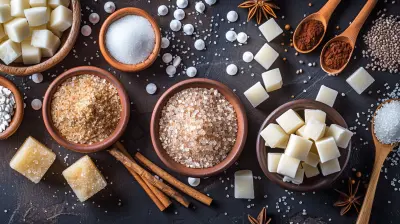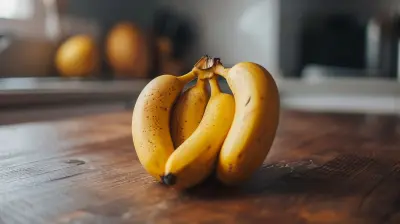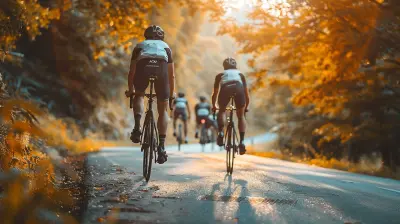Fuel for the Ride: Nutrition Tips for Cyclists
27 April 2025
Cycling is more than just pedaling; it’s a test of endurance, strength, and stamina. Whether you're a weekend warrior, a daily commuter, or a serious racer, one thing remains constant—your body needs the right fuel to perform at its best. What you eat before, during, and after your ride can make the difference between a strong, steady ride and feeling like you're dragging a ton of bricks.
So, what should cyclists eat to keep those legs spinning? Buckle up (or should I say clip in?), because we're about to dive into the best nutrition strategies to fuel your cycling journey!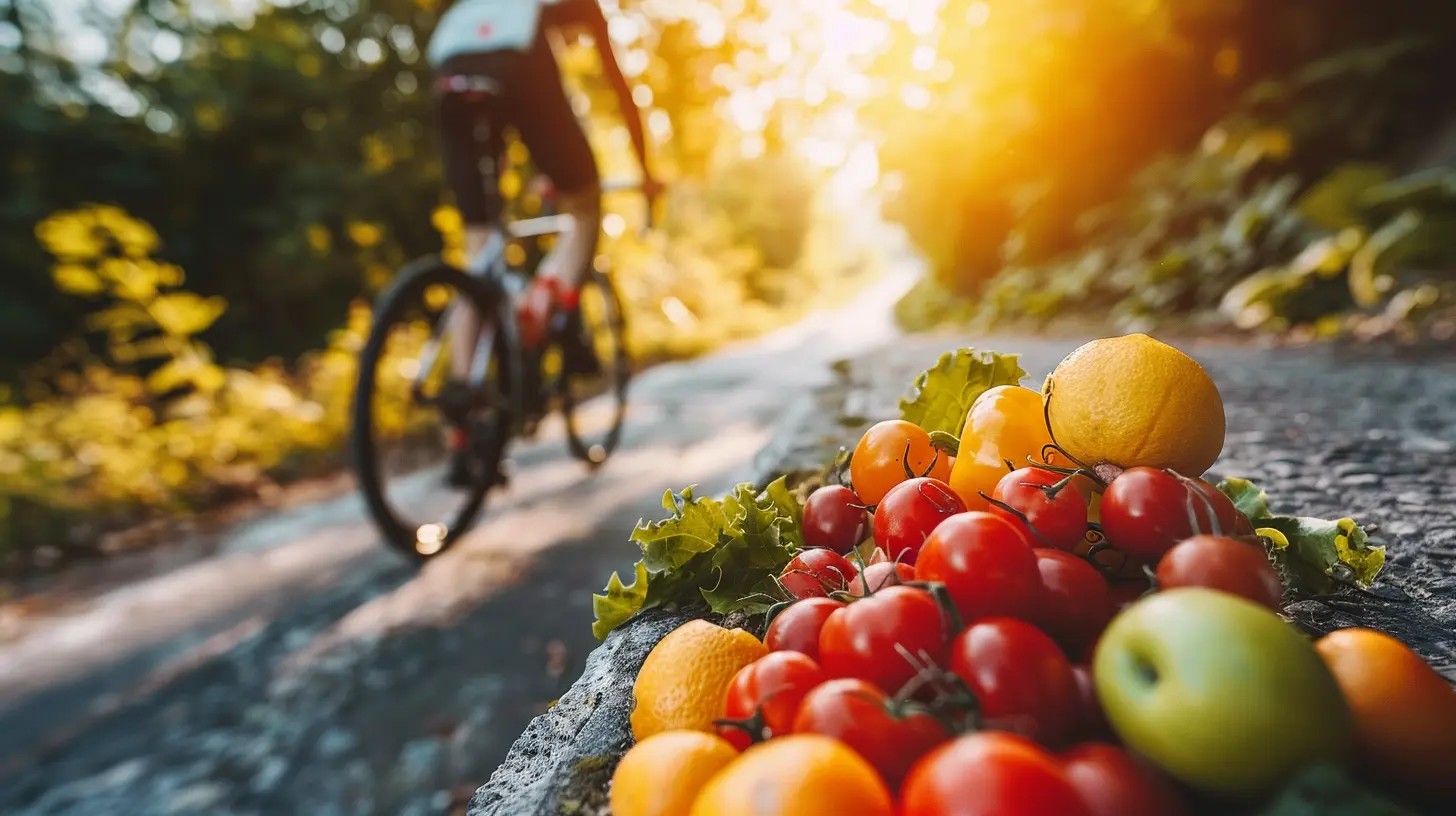
🚴 Why Is Nutrition Important for Cyclists?
Imagine trying to drive your car on an empty tank—you're not going to get very far, are you? Your body works the same way. Cycling burns a significant amount of energy, and if you’re not refueling properly, you’ll find yourself running on fumes before you even hit the halfway mark.Proper nutrition ensures:
- Sustained energy levels
- Faster recovery
- Improved endurance
- Better overall performance
Now that we’ve established why nutrition is key, let's break down exactly what to eat and when.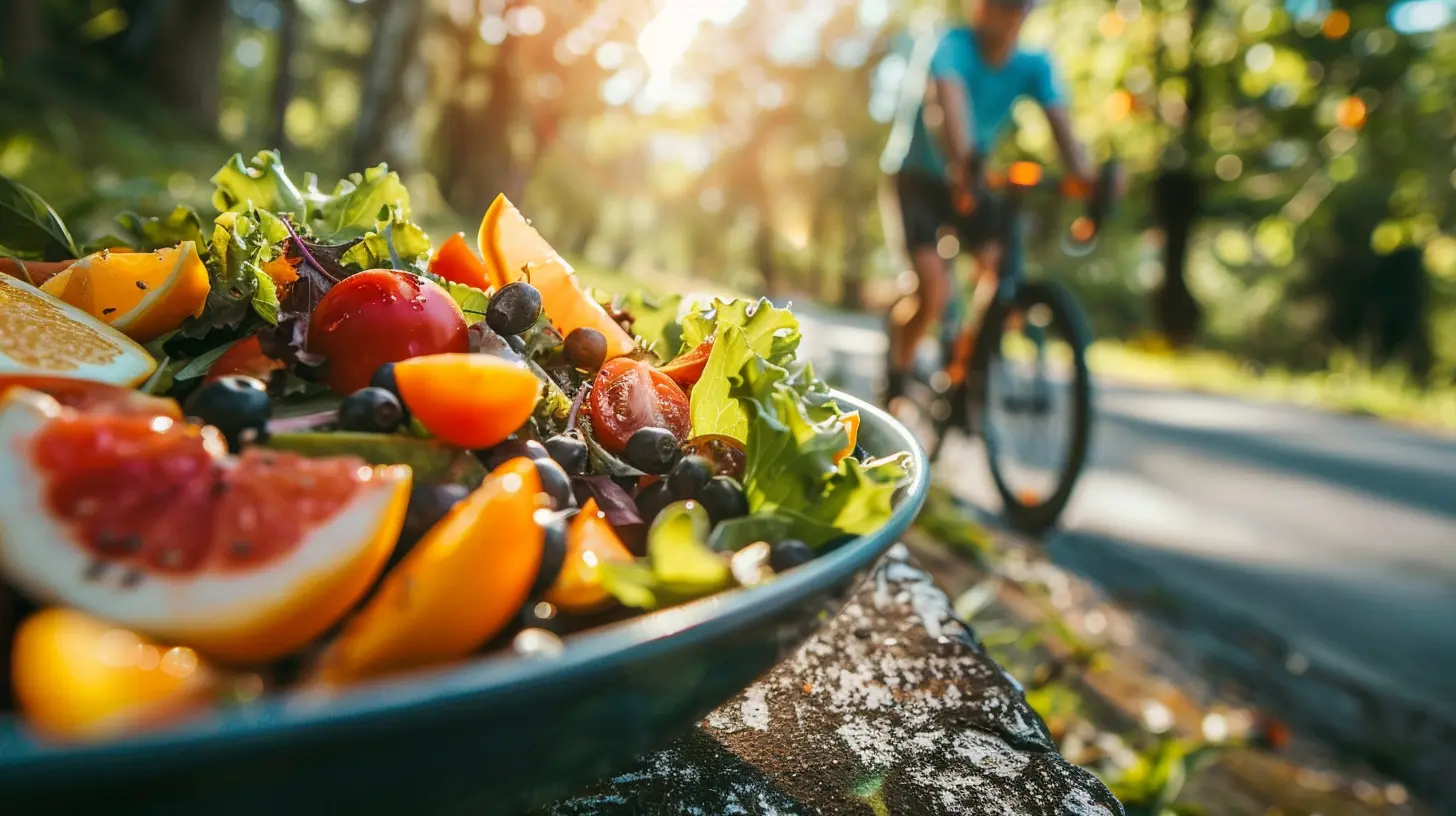
🥑 Pre-Ride Nutrition: Fueling Up for the Journey
Ever heard the phrase, “You are what you eat”? Well, before you hop on your bike, you need to make sure you're eating the right foods.1. Carbs Are Your Best Friend
Carbohydrates are the primary fuel for endurance activities like cycling. Your body breaks them down into glucose, which provides energy for your muscles.A good pre-ride meal should include:
- Complex carbs (oatmeal, whole grains, sweet potatoes) for sustained energy
- A moderate amount of protein (eggs, yogurt, peanut butter) to support muscle function
- Healthy fats (avocado, nuts, olive oil) to keep you satiated
2. Timing Matters
- 2-3 hours before your ride: A balanced meal with carbs, protein, and fats.- 30-60 minutes before your ride: A light snack, like a banana or an energy bar, to give you a quick energy boost.
Avoid: Fatty, greasy, or super high-fiber foods right before a ride—they could upset your stomach, and trust me, you don’t want that mid-ride!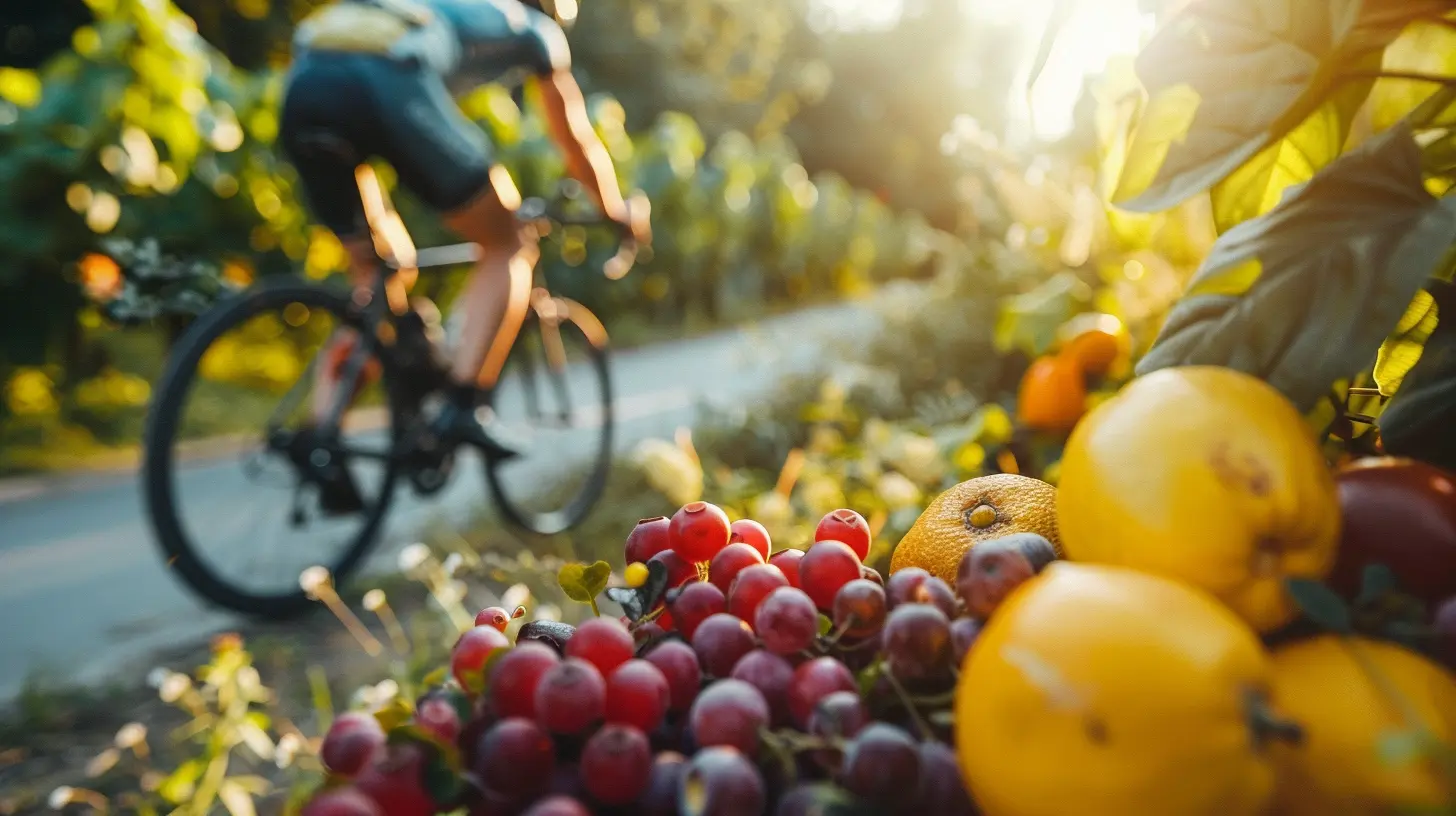
🚵 On-the-Bike Nutrition: Keeping the Engine Running
Now that you’re on the move, the goal is to maintain energy levels and stay hydrated.1. Hydrate, Hydrate, Hydrate!
Dehydration is the enemy of every cyclist. Even being slightly dehydrated can lead to decreased performance, cramps, and fatigue.What to drink:
- Water for shorter rides (under an hour)
- Electrolyte drinks for longer rides to replenish lost minerals (sodium, potassium, magnesium)
- Coconut water (nature’s sports drink) for a natural alternative
2. Eating on the Go
For rides under 90 minutes, you probably don’t need to eat much. But for longer rides, refueling with small amounts of carbs every 30-45 minutes is crucial.Great mid-ride snacks include:
- Bananas (packed with potassium to prevent cramps)
- Energy gels or chews (quick carb boost)
- Trail mix or granola bars (a mix of carbs and healthy fats)
- PB&J sandwich (a classic endurance snack)
Pro tip: Experiment with what works best for you. Some cyclists prefer real food over processed energy gels—your body, your rules.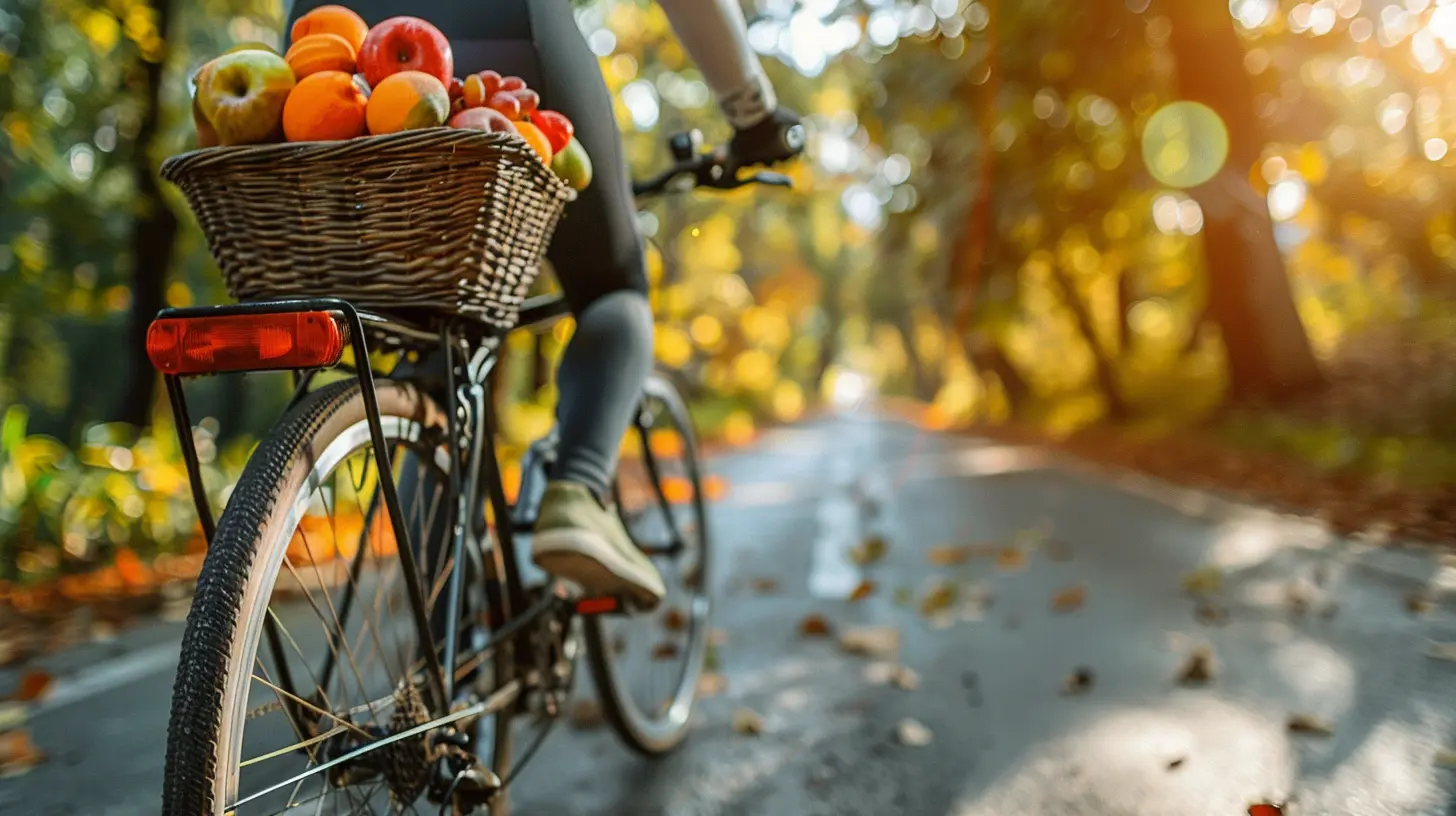
🚴♂️ Post-Ride Nutrition: Recovery is Key
You’ve put in the miles, and now it's time to refuel and recover. What you eat after your ride plays a huge role in muscle repair and replenishing energy stores.1. The Magic 30-Minute Window
Your body is primed to absorb nutrients immediately after exercise, so aim to eat within 30-60 minutes post-ride.2. What to Eat for Recovery
- Protein: Helps rebuild muscles (chicken, eggs, Greek yogurt, protein shake)- Carbs: Replenishes glycogen stores (whole grains, fruits, potatoes)
- Healthy fats: Supports long-term recovery (nuts, seeds, avocado)
A great post-ride meal could be:
✔️ A smoothie with banana, spinach, protein powder, and almond milk
✔️ Scrambled eggs with whole-grain toast and avocado
✔️ A quinoa salad with grilled chicken and veggies
And don’t forget to rehydrate! Water is a must, and if you had a long, sweaty ride, consider a sports drink or coconut water to restore electrolytes.
🍎 The Everyday Cyclist’s Diet: Eating for Long-Term Performance
Good nutrition isn’t just about what you eat before, during, and after a ride—it’s a daily commitment. Keeping a well-balanced diet will help you feel energized on and off the bike.1. Eat a Rainbow
Different colored fruits and veggies provide a range of vitamins and antioxidants to keep you healthy and fight off inflammation.2. Prioritize Protein
Protein is not just for bodybuilders—cyclists need it too! It aids muscle recovery and keeps you feeling full. Aim for lean protein sources like chicken, fish, beans, and Greek yogurt.3. Don’t Fear Fats
Healthy fats, like those found in nuts, seeds, olive oil, and fatty fish, are essential for endurance and brain function.4. Avoid Processed Junk
Highly processed foods, sugary drinks, and excessive alcohol can lead to sluggishness and poor recovery. Keep it clean and focus on whole, nutrient-dense foods.⚡ Pro Tips for Better Cycling Nutrition
- Listen to Your Body: Everyone’s nutritional needs are different. Some cyclists thrive on carbs, while others function better with more fats. Experiment and find what works for you!- Prepare Your Snacks: Having healthy snacks on hand prevents you from grabbing junk food when hunger strikes.
- Stay Consistent: Your diet should support your training, not just on the ride days but all the time.
- Don’t Forget Sleep: Proper rest and recovery are just as important as what you eat.
🚴 Final Thoughts
Cycling isn’t just about strength—it’s about strategy, and nutrition plays a huge role in your success. The right fuel will help you push harder, ride longer, and recover faster. Whether you’re training for a long-distance race or just enjoying a weekend ride, making smart food choices will keep you feeling strong in the saddle.So, what’s your go-to pre-ride meal? Have you discovered any magic mid-ride snacks? Let me know in the comments—I’d love to hear your thoughts!
all images in this post were generated using AI tools
Category:
Cycling FitnessAuthor:

Arthur McKeever
Discussion
rate this article
5 comments
Raven Phillips
Great tips! Proper nutrition is essential for maximizing cycling performance and recovery.
May 11, 2025 at 2:37 PM

Arthur McKeever
Thank you! I'm glad you found the tips helpful—nutrition truly plays a crucial role in enhancing both performance and recovery for cyclists. Happy riding!
Nala McMichael
Nutrition is the foundation of endurance; just as a bike needs the right gears, our bodies require optimal fuel. Choosing nutrient-dense foods empowers cyclists to conquer challenges and reach new horizons, both physically and mentally.
April 30, 2025 at 3:56 PM

Arthur McKeever
Absolutely! Proper nutrition fuels performance and endurance, enabling cyclists to tackle challenges with strength and focus. Choosing nutrient-dense foods is essential for optimal riding.
Flynn McAuley
Great tips! Proper nutrition is essential for maximizing performance and endurance on the bike. Fueling with the right balance of carbohydrates, proteins, and hydration can make all the difference!
April 29, 2025 at 4:47 PM

Arthur McKeever
Thank you! I'm glad you found the tips helpful. Proper nutrition really is key to enhancing performance and endurance on the bike. Happy riding!
Nix Rocha
Pedal power needs fuel!" 🚴♂️🍌
April 29, 2025 at 2:33 AM

Arthur McKeever
Absolutely! Fueling your ride with the right nutrition is essential for maintaining energy and endurance. 🍌🚴♂️
Maddison McKinley
Great tips! Proper nutrition is essential for cyclists to maximize performance and recovery. Fueling right can make all the difference on long rides. Keep pedaling strong! 🚴♂️💪
April 27, 2025 at 4:46 AM

Arthur McKeever
Thank you for your support! Absolutely, proper nutrition is key for enhancing performance and recovery on those long rides. Keep riding strong! 🚴♀️✨
